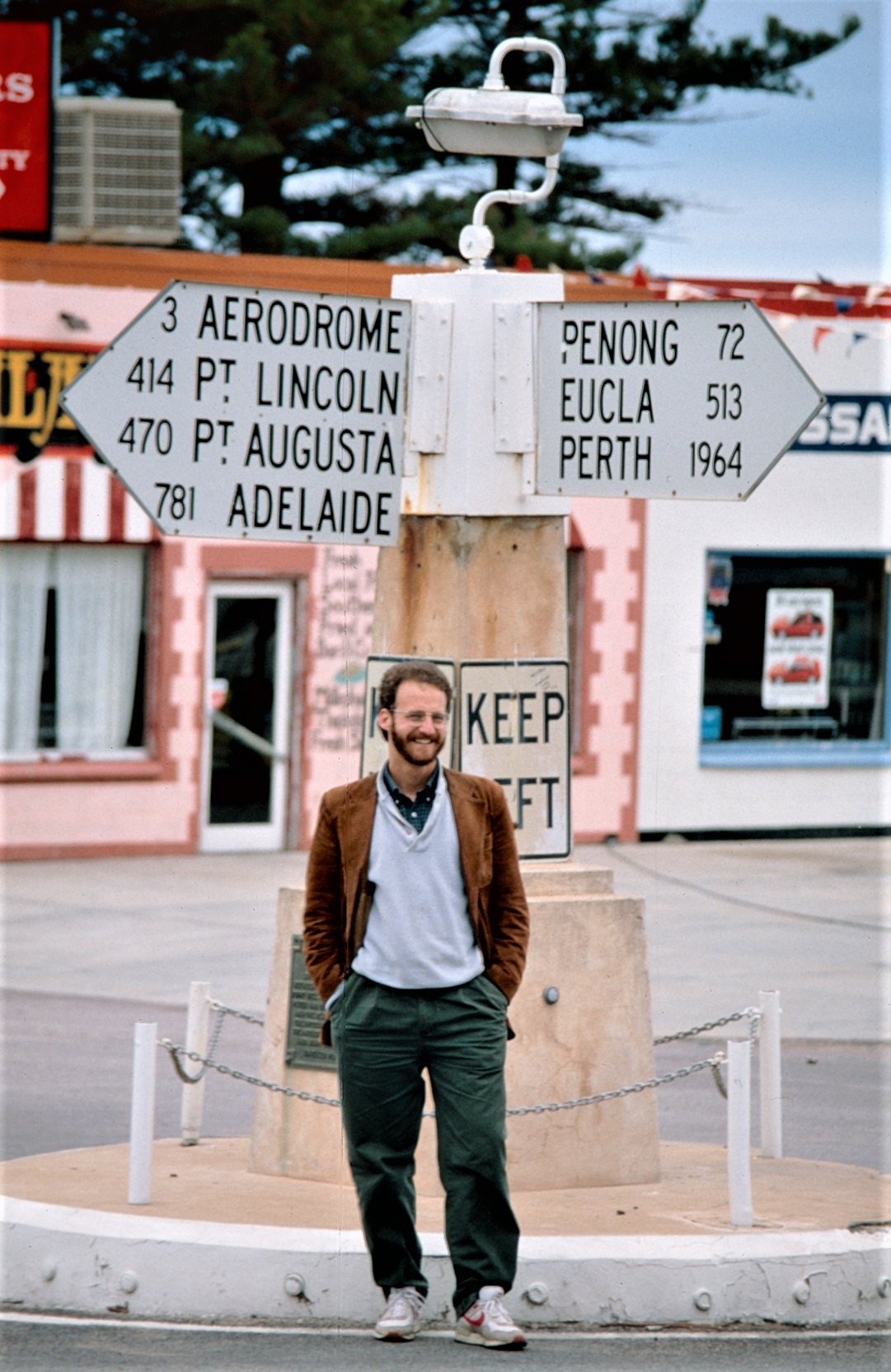Taking anthropology from the lab and field to the corner office

Ed Liebow is the executive director of the American Anthropological Association. Photo courtesy of Ed Liebow
Before becoming the first trained anthropologist to helm the American Anthropological Association, Ed Liebow got his start at Arizona State University’s School of Human Evolution and Social Change (then called the Department of Anthropology).
Now, he’s leading fellow anthropologists from around the world to expand into different career sectors and lend their expertise and solutions to a wide range of pressing issues.
As executive director, Liebow oversees all operational aspects of the AAA, which has 10,000 members, publishes more than 20 journals and organizes a host of annual meetings, fellowship opportunities and mentorship programs.
“We call public attention to the effort to understand the human condition and its applications for some of the world’s most pressing problems,” he said.
Liebow can trace his own passion for anthropology back to his childhood upbringing.
“I grew up in the Chicago area in the 1950s and ’60s, a witness to remarkable ethnic diversity and strict residential segregation,” he said. “I didn’t have a vocabulary to describe what I was observing until I started my undergraduate, where my very first term I took an anthropology class and was excited by the careful thought and nuanced language with which cultural differences and confluences were discussed.”
After a few more classes, Liebow was hooked. Later, as he began his PhD at ASU, he grew to love the school’s diverse training across anthropology’s many subdisciplines. But his time at the university proved life-changing in more ways than one.
“Without a doubt, the most impactful personal experience I had while at ASU was meeting Erin Younger on our first day of graduate school classes,” he said of his now wife. “We have been together ever since.”
A career that defines boundaries
Liebow’s path to a PhD was a meandering one. He took a four-year break to work for an urban planning firm that was helping to manage surging demand for public facilities — such as water, schools and transportation — in the Phoenix metropolitan area.
When he returned to his studies, he worked at the Phoenix Indian Center’s Urban Indian Law Project, a community legal services agency, and after graduation spent nearly three decades at the Battelle Memorial Institute’s Human Affairs Research Center, where he conducted research on the environment, public health and social policy.

Shortly after joining Battelle, Liebow visited Australia to study the cleanup efforts at a former British nuclear weapons test site (and aboriginal ancestral land) called Maralinga, which was relevant to his own work with historical tribal territories where the U.S. government manufactured and tested nuclear weapons. Photo courtesy of Ed Liebow
In 2012, this broad range of experiences opened the door to the opportunity of a lifetime — becoming the first trained anthropologist to serve as executive director of AAA.
Liebow credits his time at ASU, where he had the chance to explore the many subfields of anthropology, teach classes and participate in research, with preparing him for the position.
One of the greatest advantages anthropologists have, argues Liebow, is their ability to see how culture, society, economy, environment and a host of other factors are all interconnected. That type of big-picture thinking is important in successful business leadership and is in high demand from employers of all kinds.
Expanding the field’s influence in new and leading industries could actually help yield unexpected solutions to today’s most pressing issues, he says.
“From climate change and immigration policy to protection of cultural heritage resources and elimination of global health disparities, our job is to work so that the healthy, just and sustainable choices are the easiest ones to make.”
That’s why he’s encouraging the next generation of anthropologists to continue pushing the boundaries of their field.
“AAA is committed to ensuring the enduring legacy and impact of critical anthropological work — today and tomorrow,” Liebow said.
Under his leadership, this means expanding outreach to K-12 students and teachers; promoting innovative undergraduate teaching and learning; and supporting professional development for the growing number of anthropologists who work outside academia in businesses, government and nonprofits.
“I always recommend that whenever you approach employers, instead of thinking about how the organization can meet your needs, be thinking foremost about how you can contribute to that organization’s success,” he said. “I promise you that if the place that hires you is successful, you will be too.”
More Arts, humanities and education

ASU graduate education programs are again ranked among best
Arizona State University’s Mary Lou Fulton College for Teaching and Learning Innovation continues to be one of the best…
ASU FIDM students to see their designs on the runway at Uncertainty Fashion Showcase
Nola Hill is perfecting every stitch of her fashion design collection, which she started conceptualizing last summer.She is among…

ASU+GSV Summit brings experts together to discuss innovation in education
This week, Arizona State University President Michael Crow and other university leadership joined education and learning experts…

